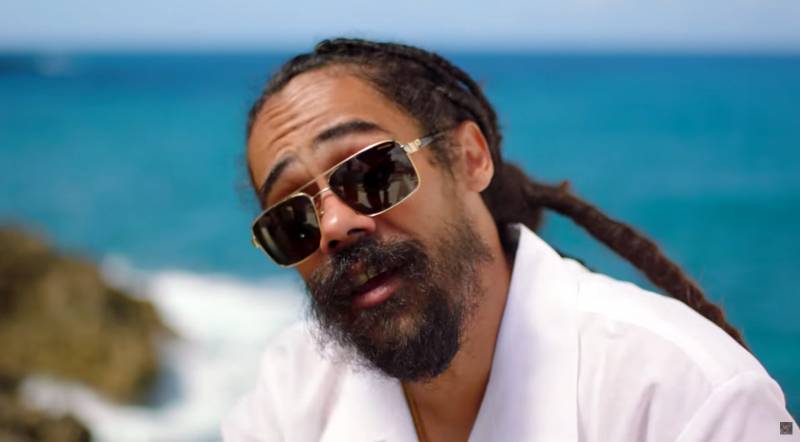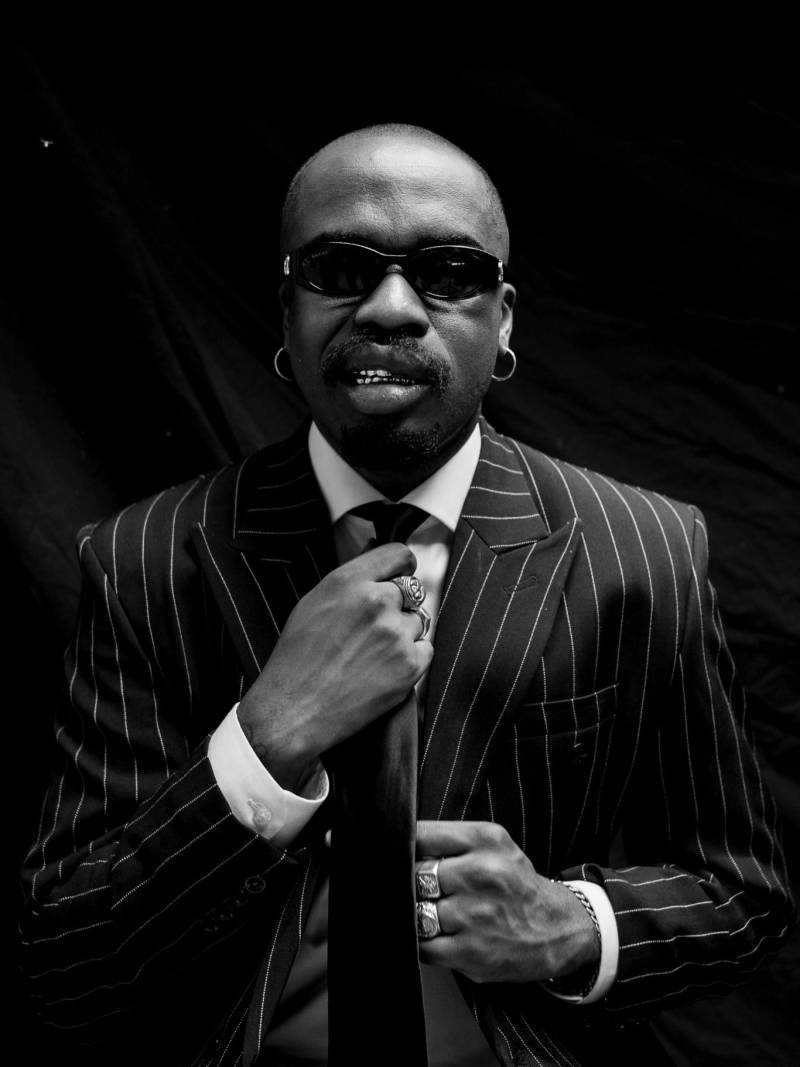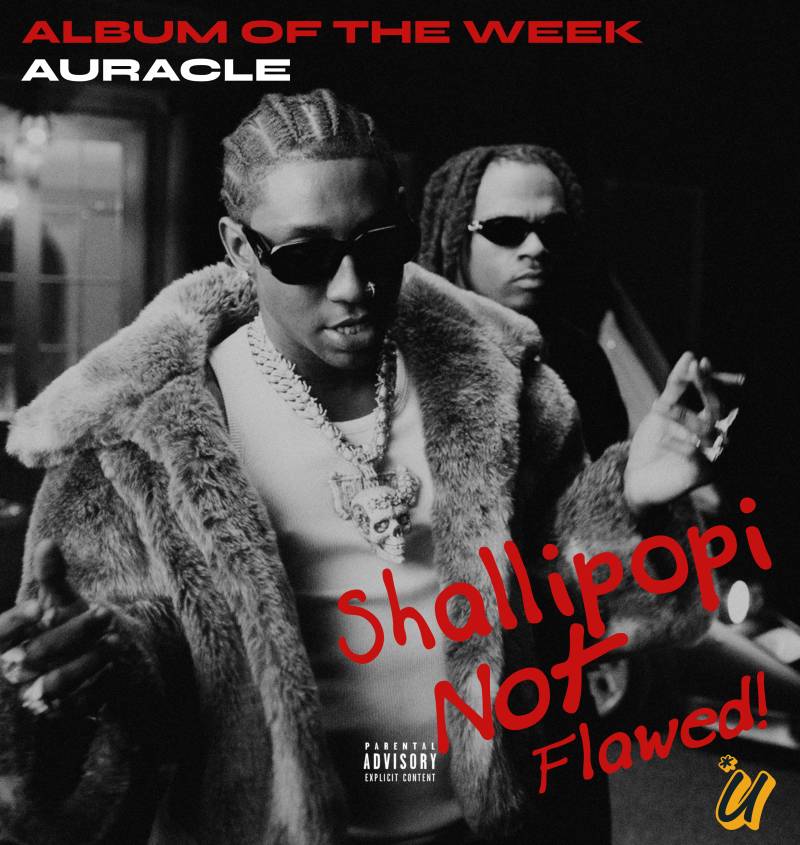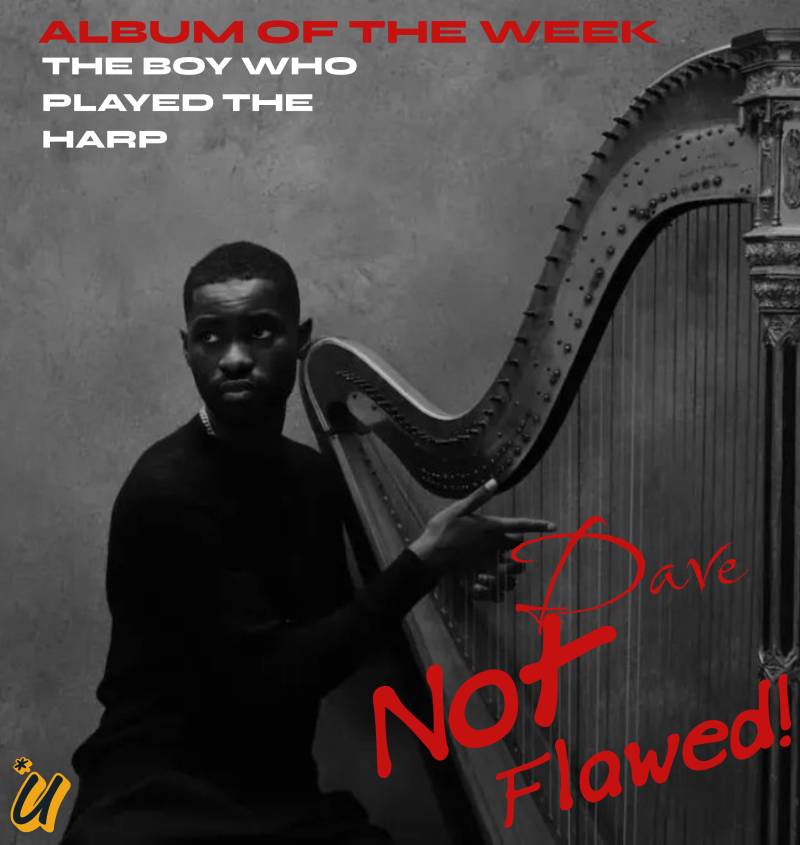The Afropop star and the reggae scion link up to talk about spirituality, fatherhood, collaboration, and what connects Nigeria and Jamaica
Welcome to Rolling Stone’s 2021 Musicians on Musicians package, the annual franchise where two great artists come together for a free, open conversation about life and music. Each story in this year’s series will appear in our November 2021 print issue, hitting stands on November 2nd.
Damian Marley became a Wizkid fan after crossing paths with the Afropop star at a New York City hotel while promoting Stony Hill, his 2018 Grammy winner for Best Reggae Album. “Wiz’s melodies are off the chain,” Marley, 43, says on a Zoom call from Miami, where he lives.
Wizkid, on the other hand, had been listening to Damian and his legendary father, Bob, for much longer. “Meeting him in New York, it was just like it was written,” the Nigerian singer, 31, says, joining the call from a stop on the U.S. tour for his stellar fourth album, last year’s Made in Lagos.
The pair teamed up for the first time on the soothing Made in Lagos highlight “Blessed.” “When I got the call to be a part of the project, I was honored,” Marley says. “As a Jamaican, as Rasta, we definitely have a great affinity toward his culture. We are definitely big fans of anything African.” The calm gratitude of “Blessed” permeates the spirit of both artists, in life and conversation.
What was recording “Blessed” like?
Marley: I was on tour. Both of us had gigs out in London. One night after one of the concerts, we all went to the studio, got together, and Wiz played a bunch of beats for me. That was the one that grabbed my attention the most. We started writing the song in the studio, together, just feeling the vibe.
Unfortunately, that night my voice was shot. I was very hoarse. So I wasn’t able to cut the vocals properly that night, but we were able to write lyrics. And then when I got back to Miami, I was able to do over my parts. The only part that made it from the original session is the front bit where I’m saying, “I might be rough around the edges, maybe yes.” If you listen to my voice, right there you can hear that it’s really gravelly, just because of me doing the concert earlier on in the night.
Wizkid: That’s the beauty of that record! Just the way it starts, the tone of it, the raspiness of the vocals, like, “Ah, that was beautiful!” From the first time I heard it in the studio, I just went mad. I couldn’t believe it. It was like magic right before my eyes. If I’m being very honest with you, that was one of the most amazing sessions I’ve ever been in, for real.
Marley: Thank you, bro.
Damian, you mentioned the significance that Africa has to you. Wiz, would you say the same thing about Damian’s homeland?
Wizkid: Well, Jamaica is a place that, from when I was young — especially when you’re from Africa, when you’re from Lagos, Nigeria — it was so amazing to see the culture. Just to listen to the music, because that was what we were first introduced to, and later, seeing the videos and finding out more about the culture. It’s like, “Yo, this is like us.” It’s the same thing. When I went to Jamaica for the first time, it was everything that I thought it would be and more. It’s an amazing place, the most beautiful place, amazing food, great people.
Marley: For me, we grew up hearing about Africa — Nigeria, Ethiopia, all these places. It is almost like a dream. You’re hearing about this far-off place until you end up going there, until you end up meeting people from there. Then it becomes more real. Rastafari is heavily embedded in African culture and is very proud of our African roots.
Both of you were relatively young when you got into music. What were those early days like?
Marley: How did you start off, Wiz?
Wizkid: I started off in church. My mom was a pastor, and my father is a Muslim. So I used to go to church with my mom, and I’d come back and go to the mosque with my father. Music has always just been a big part of my family. All my older uncles played instruments in church, and my mom’s younger sisters were all in the choir. That was how I was introduced to music, and I just fell in love.
I got introduced to rap first from my older cousin. He used to play me most of the hip-hop records. I started discovering music, listening to reggae, a whole lot of Bob Marley — like too much Bob Marley, man! It was like a religion for us back then.
So that actually made me want to just know more about the culture and just make music that people can relate to out there. I hope one day I’m able to take you to Lagos.
Marley: When you got into the studio for the first time, you were in Lagos, right?
Wizkid: Yeah, I was in Lagos. I got into the studio the first time when I was 13.
Marley: Word. As everyone knows, I come from a very musical family. So for me, the access to music was always there for me if I chose. So it was really when I started to buy dancehall music for myself — that was when I wanted to start doing music for myself. Just like what you said, my first studio experience was probably around 13 years. I think the first release was around 13. It’s just something that we grew up in.
Wiz, you have three sons, and Damian, you have one. Are your children showing interest in music?
Wizkid: My first son likes rap music a lot. And my last son, yeah, he just likes music, man. He likes to listen to music. He hums a lot as well, melodies, like how I do. My second son, I don’t really know what he wants to do yet, but I’m very open to whatever they feel like doing. I would always support my family, my kids, whatever they want to do. If it’s music, fine. If it’s not, there’s no pressure, just love.
Marley: My son is very talented. Whether or not he will choose to do more music, I don’t know. But he loves it. He writes his own lyrics, and he can play drums pretty well. He loves music, but you know when you’re a kid, he loves anything that his friends are interested in. He loves music, but at the same time, he’s saying that he wants to be in the NBA. And then when the basketball season is over, he wants to be a pro wrestler. But the music is always constant, regardless of what fad comes in and out of his interest.
Wizkid: That’s amazing.
Marley: For me, [fatherhood] puts you in a different point of view. You start to look at your life in a different way, where you’re now responsible for another life. It makes you look at your own mortality.
Wizkid: Yeah. Fatherhood changed me, man. It’s like everything he said and more. When I had my first child, I was 21. I’ll never forget. I felt so lost, ’cause I wasn’t sure I was ready to be a father at that point. I was scared I wasn’t going to be a good father to my kids ’cause I [was] still a baby. I was so confused.
I remember after I had my child, it just changed everything, man. I started seeing my life different. I literally started putting my business together after I had my kid. It just made me [think], “Oh, wow. Another life is here that I have to care for. That’s my responsibility.” So he really changed my life, man, and I called him Boluwatife: “As God wishes.” That was a big blessing to my life. Fatherhood changed me forever.
Spirituality seems to be an important part of both of your lives. What role does your spirituality play in your career as an artist?
Marley: Spirituality plays a role in my life — in the decisions I make, when it comes to what food I eat, how I speak to people. Music is just another thing that my spirituality influences. It influences everything. For me, making music is, I would say, one of the most spiritual experiences I’ve ever had. It’s a spiritual experience to write a song. Sometimes you don’t really know where these ideas come from because it just happens. So sometimes you feel like it’s almost like it’s given to you.
Wizkid: Yeah, man. I come from a very spiritual home, too. So that plays just a role in everything, just everything. I can’t even make an album if I’m not in the right space. I can’t make music if I’m not feeling right or feeling good with my soul, my family, or anyone close to me. I take all of those things seriously. I don’t think we would be here if we weren’t as spiritual as we are. It’s just—
Marley: I would say blessed.
Wizkid: I would love to say that I would love to make more music with you, boss man.
Marley: Thank you very much for inviting me to be a part of the album. We definitely have to link up and do some more stuff together. I’d love it if you can even contribute some stuff to some projects I’m working on. Even outside of your vocals, some of the production, too, and all that stuff. The beats are amazing, also.
Wizkid: Any way that we can work together, I’m down.
SOURCE : rollingstone




